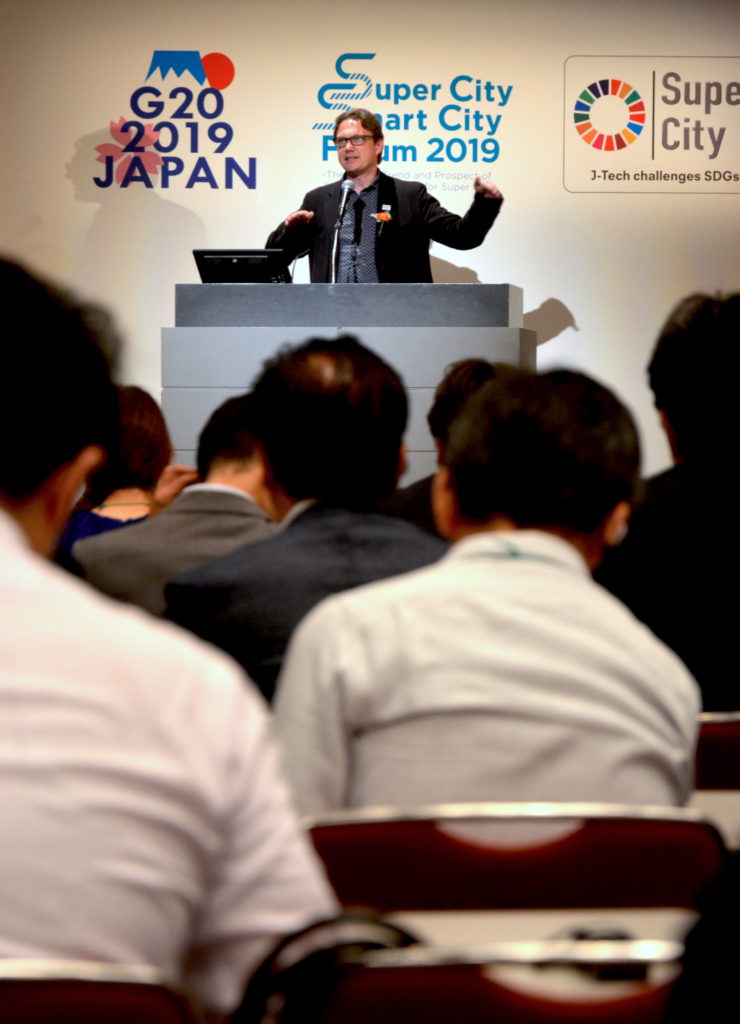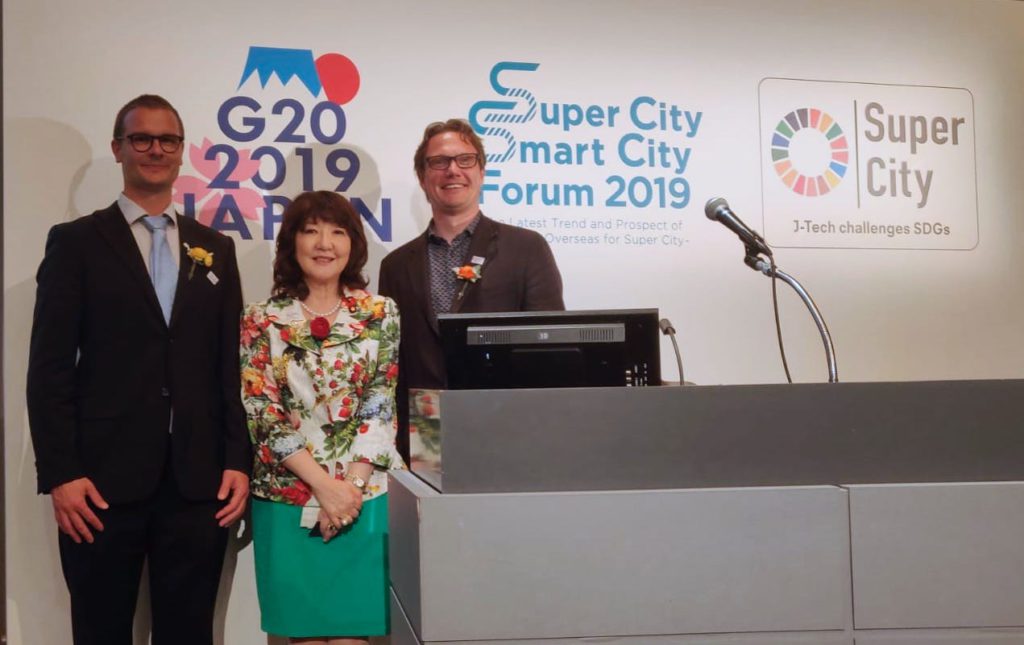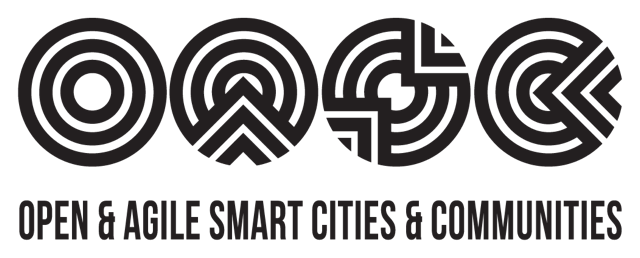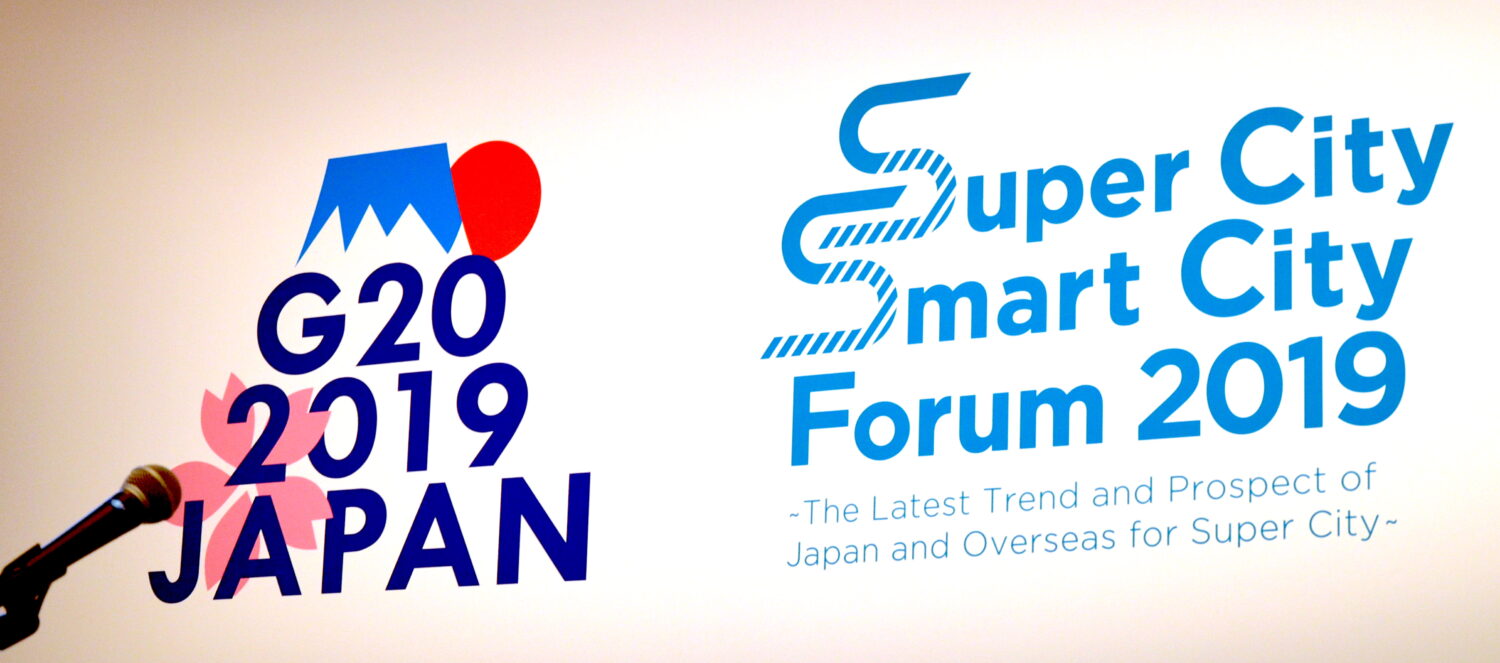In an effort to advance global cooperation for the benefit of smart cities & communities, Open & Agile Smart Cities (OASC) has deepened its relations with key players in Japan and the renowned World Economic Forum.
At the Super City Smart City Forum 2019, an official side event of this year’s G20 Summit in Osaka in Japan, OASC was invited by the Cabinet Office of the Japanese Government to share the success story of the network with Japanese stakeholders from public administrations, research, and industry.

Martin Brynskov, Chair of Open & Agile Smart Cities, also presented achievements of the SynchroniCity project. In his speech, Brynskov highlighted that open collaboration between cities as well as minimal digital interoperability based on open standards are crucial for the successful digital transformation of public administrations [Slides].
According to Brynskov, the three “C”s are leading the way towards scale up of local digital solutions that help cities to address common challenges:
- CIVIC: Driven by public needs, backed by industry
- COMMON: Understanding & standards
- CONCRETE: Linking instruments (projects, policy, financing, places)
Helsinki is one of the cities that is at the forefront of digital transformation. The capital of Finland is both an OASC member city and a SynchroniCity partner and is benchmarking the implementation of digital solutions based on minimal interoperability.
Helsinki: The Most Functional City in the World
The city of Helsinki, a front-runner city in many “smart areas” still experiences bumps in the road towards becoming the most functional city in the world. The biggest challenge to achieve this goal is the mindset of the city administration. Concretely, this means the deeply embedded hierarchical and siloed organisation of cities, explained Mikko Rusama, Chief Digital Officer of Helsinki, in his keynote address.
According to Rusama, the most functional city today is able to make the best use of the opportunities provided by digitalisation. That means that digital services offered by cities must be secure, personalised, user-friendly, and provided pro-actively and at the right time. [Slides]
Japan: From Smart to Super City
Not only Helsinki, but public administrations around the world are working towards becoming more functional cities and communities. In an effort to deliver the benefits of digital transformation to citizens, the Japanese Government has launched the Super City Initiative. The ambition of this initiative is to catapult Japanese cities into a new era of city planning and to provide better and more efficient services for citizens, explained Satsuki Katayama, Special Missions Minister of the Cabinet Office, Government of Japan, in her speech.

Minister Katayama conveyed a message from Japan’s Prime Minister Shinzo Abe, who vowed to support the global paradigm shift towards data free flow based on trust and privacy. The Super City initiative closely observes and takes into account European benchmarks such as the General Data Protection Regulation and the “Once Only”-principle.
From Local to Global: Sharing Knowledge to Scale Digital Solutions
In his keynote address to the plenary, Stefan Kramer, First Counselor, Delegation of the European Union to Japan, highlighted that while every city is unique, they face common challenges [Slides]. Therefore, cooperation and sharing knowledge is crucial for the success of 21st century cities.

Kramer presented European initiatives and projects that aim to support cities & communities in addressing common city challenges together. Among others, he stressed the role of the EIP-SCC and the IoT Large-Scale Pilots (IoT LSP). Kramer specifically highlighted the work of OASC working on a roadmap based on existing standards and mechanisms, governed by cities, supported by suppliers and infrastructure providers. The IoT LSP, SynchroniCity, on the other hand, is set up to mature and validate this roadmap.
To support these efforts, the European Union will bump up its support to scale digital solutions that put citizens at the center. The Digital Europe Programme alone has set aside €1.3 billion for the digital transformation of cities and communities – with a specific focus to enable interoperability based on common, open, and minimal standards.
At the end of the day, two key messages stick:
- Cooperate if you want to be successful
- Minimal is key to interoperability
As Stefan Kramer stressed in his keynote speech, cities and communities need to collaborate and cooperate on a national, European and international level to stay on top of rapidly changing technologies and to make the best of the opportunities the digital transformation provides. Kramer highlighted several European and international networks that facilitate cooperation such as the European Committee of the Regions, EUROCITIES, Open & Agile Smart Cities, and the European Network of Living Labs.
At the closing of the Super City Smart City Forum 2019, Minister Katayama concluded that minimal standards of interoperability are needed to achieve digital transformation of our cities. In order for such minimal standards to work, they must be established internationally but based on national collaboration. Minister Katayama highlighted that cities need to be open and agile and must include rural communities in the efforts to drive digital transformation.

